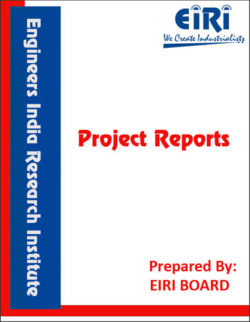RICE BRAN OIL
The project report includes Present Market Position and Expected Future Demand, Market Size, Statistics, Trends, SWOT Analysis and Forecasts. Report provides a comprehensive analysis from industry covering detailed reporting and evaluates the position of the industry by providing insights to the SWOT analysis of the industry.
We can prepare PROJECT REPORT as per your INVESTMENT PLAN for BANK LOAN REQUIREMENT and INDUSTRY ANALYSIS. All reports are prepared by highly qualified consultants and verified by a panel of experts.
Have Query? Click Here to Chat
Industry Expert is Online, Chat with him for more detail.

There is great demand of Rice bran oil (RBO) in India. Solvent extraction in general implies the removal of soluble material from an insoluble solid phase by dissolution in a liquid solvent. The soluble constituent may be a pure liquid or a liquid solution or even another solid mixed more or less intimately with the insoluble material. The solid phase may be particulate matter or a semi permeable cellular material. The solute may dissolve quickly upon contact with solvent, or may dissolve only after diffusion through insoluble material, depending upon the solvent used, the type of equipment, nature and physical condition of the solid phase and the operating conditions. International rice bran oil market size was estimated at over 1.5 million tons in 2015-16. Internationally edible oil market size was estimated more than 169 million tons in 2015-16. India is the world’s 2nd largest producer of rice. Solvent extraction, as applied to the oil industry, involves the leaching of oil from an oil bearing seed or cake specially prepared for efficient extraction, by a hydrocarbon solvent, generally n-hexane. Groundnut oilcake, rice bran and soyabean specially amenable to such treatment. Raw material availability in the form of rice particularly in Asian countries are available in plenty of quantity in India, Production is majorly concentrated in countries such as India, China, Japan, Thailand and Vietnam. The plant and machinery to produce rice bran oil is available in India as well as raw materials sources. Major states producing rice in India are West Bengal, Uttar Pradesh, Andhra Pradesh and Punjab. While extraction with solvents constitutes the most efficient method for the recovery of oil from any oil-bearing material, it is relatively the most advantageous in the processing seeds or other material low in oil. The minimum oil content to which oil cake can be reduced by mechanical expression is approximately the same for all oil seeds, that is, about 2 to 3%. Growth in personal care & cosmetic sector is also likely to favour Rice Bran Oil (RBO) market growth over the future period. Consequently, the oil unrecoverable by mechanical expression, in terms of percentage of the total oil, increases. Substitution of solvent extraction for pressing methods increases the yield of oil from soyabeans by 12.1% whereas in the processing of yield of oil from increase 11.5% and in the case of flaxseed only 5.3%. The figures, it should be noted, are industry-wide averages. The increase of oil yield for soyabeans and cottonseed by solvent extraction over the most efficient mechanical processing today is appreciably less. Of all the common oil seeds, soyabeans are solvent-extracted most easily. By “Prepressing” or “forepressing” the seed in low pressure screw presses to remove a portion of the oil it is possible subsequently to solvent-extraction high-oil-content seeds that are difficult or impossible to handle in their original form in conventional equipment. In Europe and where European practices have prevailed, it is the general practice to extract whole soybeans but to prepress other oil seeds. In the United States prepressing is used commercially on cottonseed, flaxseed, peanuts, and corn germ.
1. INTRODUCTION
2. PROPERTIES
3. USES AND APPLICATIONS
4. MARKET POSITION
5. OIL PRODUCTION
6. LIST OF PRESENT MANUFACTURERS
7. MANUFACTURING PROCESS (DETAILS)
8. SOLVENT FOR OIL EXTRACTION
9. MISCELLA PRE-CONCENTRATION AND DISTILLATION
10. NATURE OF SOLVENT
11. FLOW DIAGRAM
12. ADDRESSES OF SUPPLIERS OF
COMPLETE PLANT & MACHINERY
13. COMPLETE SOLVENT EXTRACTION UNIT
APPENDIX – A :
1. COST OF PLANT ECONOMICS
2. LAND & BUILDING
3. PLANT AND MACHINERY
4. FIXED CAPITAL INVESTMENT
5. RAW MATERIAL
6. SALARY AND WAGES
7. UTILITIES AND OVERHEADS
8. TOTAL WORKING CAPITAL
9. COST OF PRODUCTION
10. PROFITABILITY ANALYSIS
11. BREAK EVEN POINT
12. RESOURCES OF FINANCE
13. INTEREST CHART
14. DEPRECIATION CHART
15. CASH FLOW STATEMENT
16. PROJECTED BALANCE SHEET



